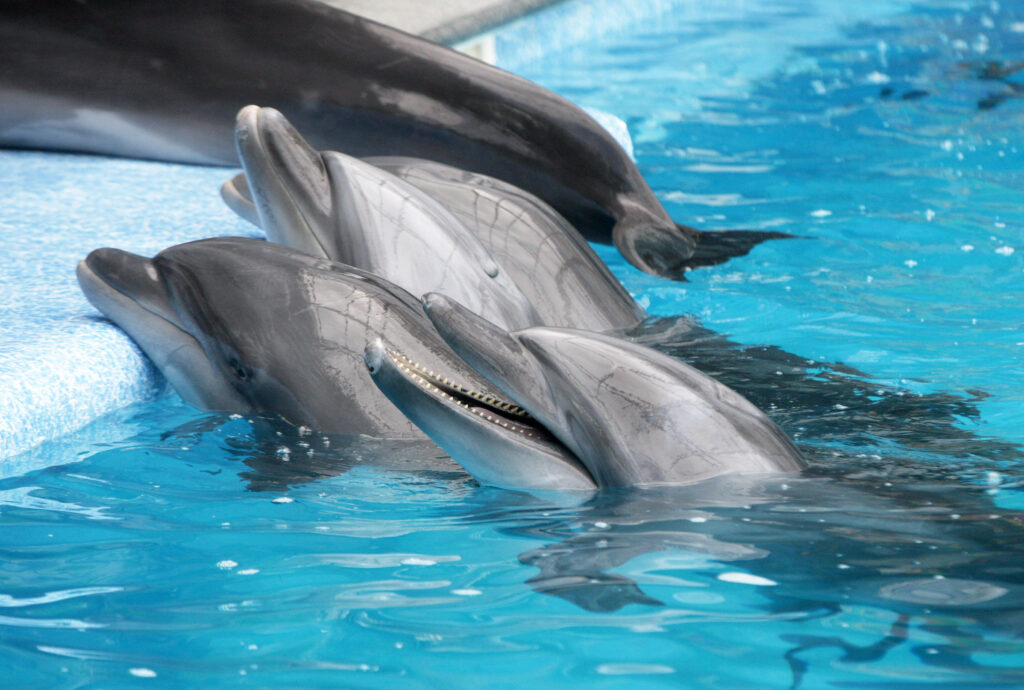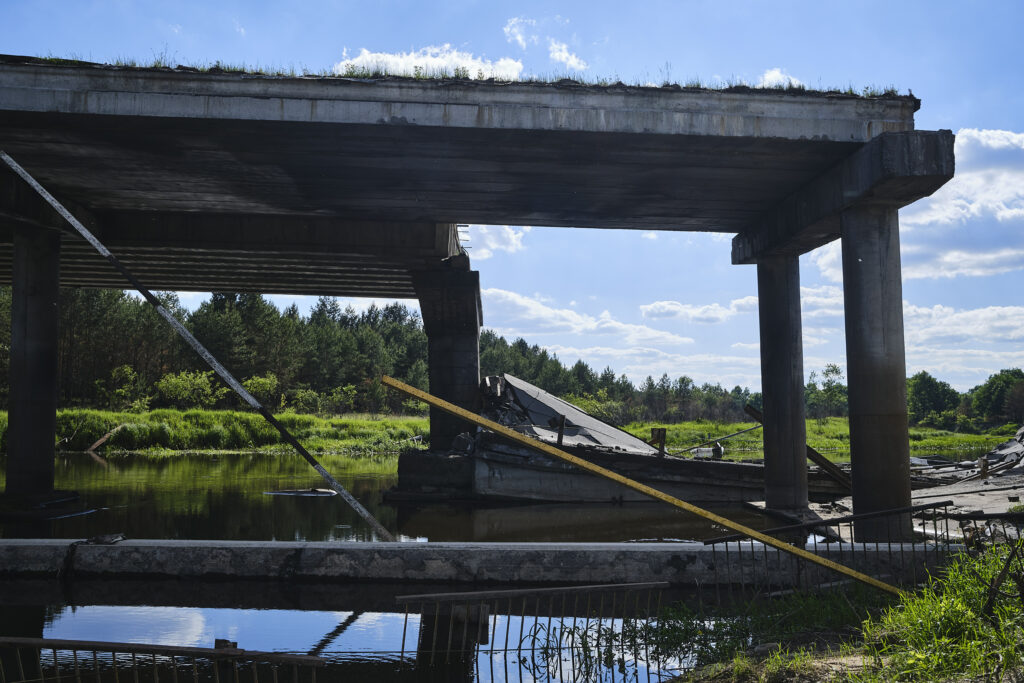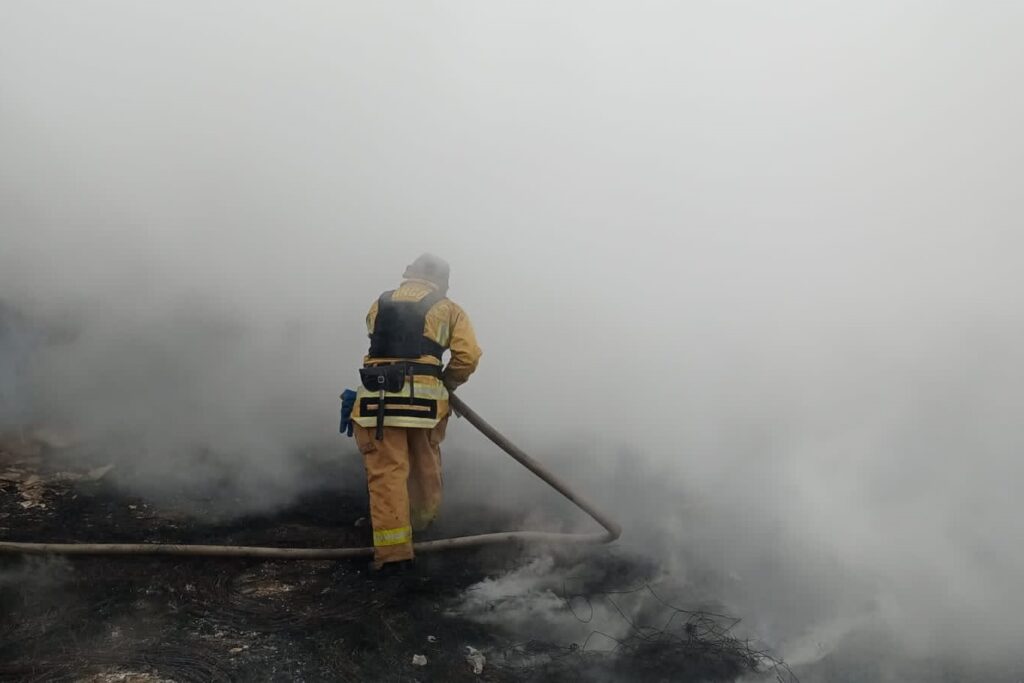
Blog: How protecting the environment and helping Ukraine to win the war serve the same goal
As well as death and untold human suffering, wars also cause huge environmental damage and pollution. The unprovoked Russian invasion of Ukraine, which began on 24 February last year, is no exception. Its ecological consequences will take decades to eliminate. The actions of the Russian army in Ukraine, and its dependency on Russian energy sources, are contributing to environmental degradation and have effects not only in Ukraine but in the whole of Europe.

Direct consequences of warfare
Direct environmental outcomes of the ongoing fighting include enormous emissions of greenhouse gases, pollution of soil chemicals, and the physical destruction of wildlife and the natural environment. Major Ukrainian rivers (Dnipro, Donets, Irpin) have become battlegrounds. Oils from Russian vehicles are toxic to river wildlife. According to one Ukrainian environmental organisation, almost half of Ukraine’s most valuable natural reserves are under the control of Russian army.
The main battlefield now is Southern and Eastern Ukraine, a territory that has a lot of industrial facilities and factories. Damaging fuel reservoirs releases acids into the atmosphere and is dangerous for human health. Southern Ukraine (including Kherson region) is rich with exceptionally fertile soils. The movement of heavy machinery, noise pollution, and chemical contamination make the soil unsuitable for growing crops, and food containing the pollutants will be dangerous to consume.
According to reports last year, Russia had plans to blow up the Kakhovka Hydroelectric Power Plant, to flood the Kherson region of Ukraine in order to prevent Ukrainian army from crossing onto the right bank of the Dnipro river. If this happened, large areas, including nature reserves, would be flooded.
Apart from direct damage caused by shelling, the presence of the Russian army at the Zaporizhzhia Nuclear Power Plant may cause a catastrophe similar to Chornobyl Power Plant explosion in 1986. The consequences of such activities will endanger the lives of thousands of people in Ukraine and abroad and will have a huge and irreversible impact on the environment.

Trenches dug by the Russian army, and forest fires caused by it in the Chornobyl exclusion zone led to the dispersal of radioactive dust and the emission of radioactive particles into the atmosphere. Levels of radiation exceeded the annual limit 28 times already on the first day of the invasion. Fires affected about 10,000 hectares of forest in the exclusion zone.
Not only flora got damaged by the war, but also fauna. About 50,000 dolphins died from poisoning and noise pollution from military equipment. Their bodies were found along the shore of the Black Sea. Russians have dropped around 200 bombs on the nature reserve in the Odesa region and destroyed endangered bird species in occupied Crimea.
Reduction in gas and oil dependency accelerating the energy transition
By the beginning of 2022, nearly all European countries were buying gas and oil from Russia. For many countries, especially Eastern European ones, Russia was the major or even the only, supplier of gas.
Despite the big reduction in purchases of Russian oil and gas, EU countries still pay Russia close to €200 million daily, and collectively remain the largest importer of Russian fossil fuels in the world, while countries like China and India not only didn’t stop buying Russian oil and gas but increased their consumption. Statistics on purchases of Russian gas can be viewed on Russia Fossil Tracker.
The Russian invasion of Ukraine will accelerate the transition to renewable energy in Europe, as countries wean themselves from Russian gas and oil. By refusing to buy Russian fossil fuels, Europe is not only becoming energy independent but also has a good incentive to increase the share of renewable energy in its consumption. The long-awaited energy transition is now enhanced by a critical need.
War has also affected renewable energy production in Ukraine. Due to the Russian invasion, about 90% of the renewable energy production in Ukraine was disrupted, and some renewable energy facilities were destroyed.
To conclude, the defeat of the Russian army in Ukraine, and the end of Russian energy dependency will not only save lives and help economies to recover, but also save nature and prevent environmental degradation in Europe.

LATEST

How you can help the planet every day

Building Europe: Poland’s experience of joining the European Union and lessons for Ukraine

World Health Day 2024: My Health, My Right

EUREKA MEETS EUROPE – opportunities to develop and study. My experience

Can you wear pink in the workplace?
More campaign pages:
Interested in the latest news and opportunities?
This website is managed by the EU-funded Regional Communication Programme for the Eastern Neighbourhood ('EU NEIGHBOURS east’), which complements and supports the communication of the Delegations of the European Union in the Eastern partner countries, and works under the guidance of the European Commission’s Directorate-General for Neighbourhood Policy and Enlargement Negotiations, and the European External Action Service. EU NEIGHBOURS east is implemented by a GOPA PACE-led consortium. It is part of the larger Neighbourhood Communication Programme (2020-2024) for the EU's Eastern and Southern Neighbourhood, which also includes 'EU NEIGHBOURS south’ project that runs the EU Neighbours portal.

The information on this site is subject to a Disclaimer and Protection of personal data. © European Union,